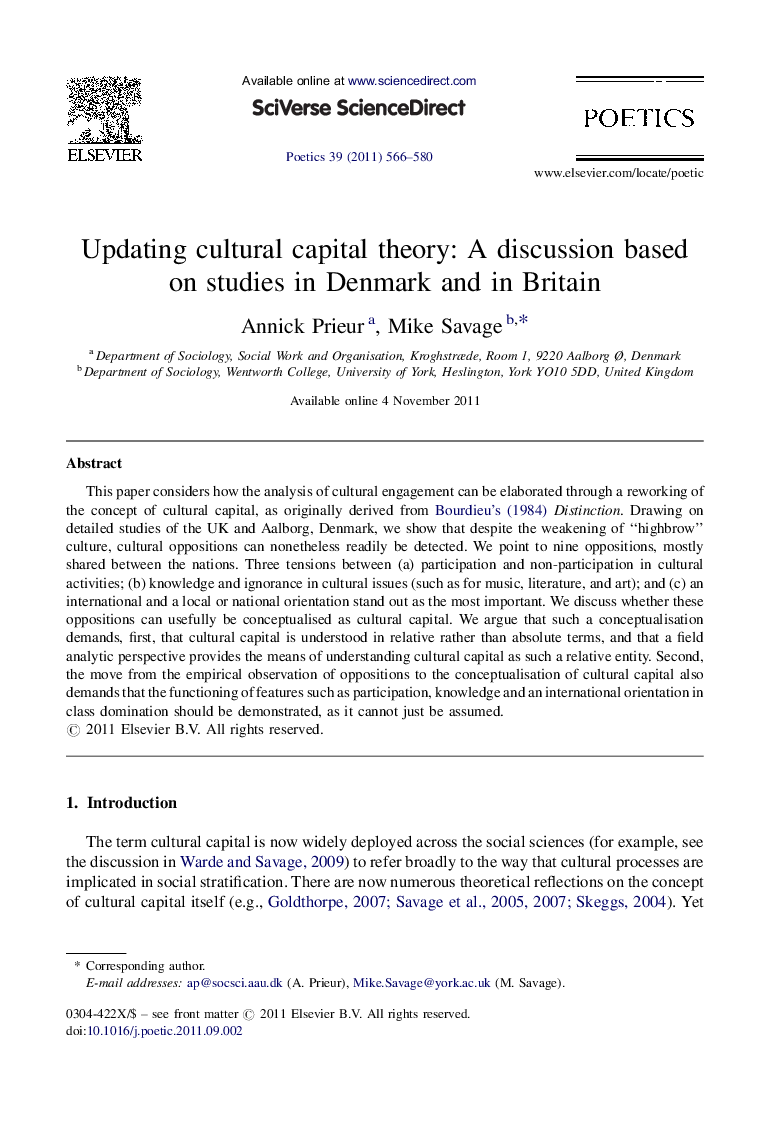| Article ID | Journal | Published Year | Pages | File Type |
|---|---|---|---|---|
| 1128598 | Poetics | 2011 | 15 Pages |
This paper considers how the analysis of cultural engagement can be elaborated through a reworking of the concept of cultural capital, as originally derived from Bourdieu's (1984)Distinction. Drawing on detailed studies of the UK and Aalborg, Denmark, we show that despite the weakening of “highbrow” culture, cultural oppositions can nonetheless readily be detected. We point to nine oppositions, mostly shared between the nations. Three tensions between (a) participation and non-participation in cultural activities; (b) knowledge and ignorance in cultural issues (such as for music, literature, and art); and (c) an international and a local or national orientation stand out as the most important. We discuss whether these oppositions can usefully be conceptualised as cultural capital. We argue that such a conceptualisation demands, first, that cultural capital is understood in relative rather than absolute terms, and that a field analytic perspective provides the means of understanding cultural capital as such a relative entity. Second, the move from the empirical observation of oppositions to the conceptualisation of cultural capital also demands that the functioning of features such as participation, knowledge and an international orientation in class domination should be demonstrated, as it cannot just be assumed.
► This paper suggests to elaborate the analysis of cultural through a reworking of the concept of cultural capital, as originally derived from Bourdieu's (1984)Distinction. ► Despite the weakening of “highbrow” culture, cultural oppositions can nonetheless readily be detected in studies of the UK and Aalborg, Denmark. ► The tension between participation and non-participation in cultural activities is an important opposition. ► The opposition between knowledge and ignorance in cultural issues (such as for music, literature, and art) also stand out as important. ► The opposition between an international and a local or national orientation is equally striking.
